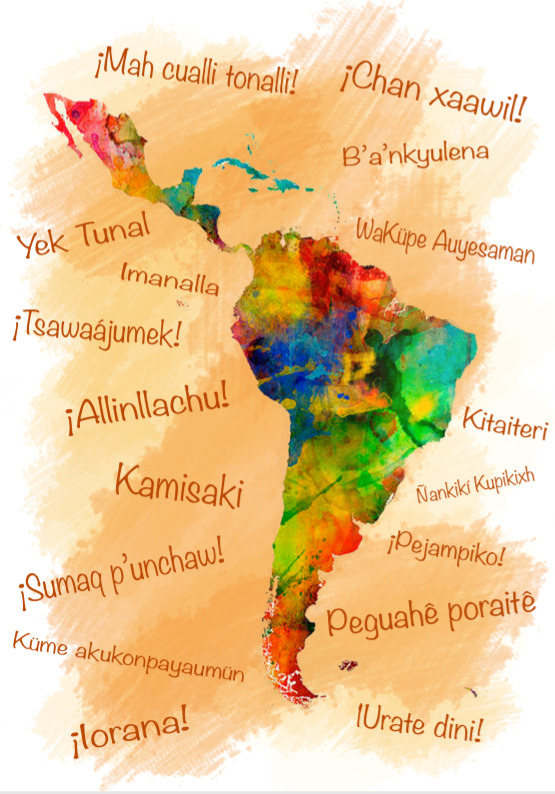
Online Indigenous Film Festival of Latin America and the Caribbean – Upcoming
The countries from Latin America and the Caribbean together with UNESCO are launching an Online Indigenous Film Festival (OIFF) within the context of the International Year of Indigenous Languages 2019 (IYIL2019) and of the upcoming Latin American and the Caribbean Week , that will take place on 3 – 7 June 2019 at UNESCO Headquarters (Paris, France).
The region of Latin America and the Caribbean is culturally and linguistically diverse. Indigenous languages equip speakers with an invaluable skillset and expertise in different domains, enabling them to engage in constructive, dynamic and creative societal development. They have the potential to benefit humanity as a whole, not only local populations.
On the occasion of the celebration of Latin American and the Caribbean Week, over two weeks (3-14 June 2019), more than 70 films of professional filmmakers from Argentina, Bolivia, Brazil, Colombia, Chile, El Salvador, Mexico and Peru on indigenous languages and their role for ensuring social inclusion, access to education, protection of the environment. The films will be available in Spanish and indigenous languages spoken in the LAC region such as Damana (Pueblo wiwa), Kamëntsá, Awápit, Namtrik (Pueblo Misak), Nasa yuwe, Mojeño Ignaciano, Chacobo, Chiquitano, Kalapalo, Matlatzinca, Tojolabal, Tojono, Otomí, Waorani, Movima, Machineri, Cavineño, Huasteco, Yaqui, Tseltal, Huichol, Qhas Qut Suñi Urus, Uru Chipaya, Moré, Tsimane, Ch’ol, Mayo, Purépecha, Seri, Cucapá, Weenhayek, Náhuatl, Nasa yuwe, Guaraní, Mosenten Beni, Kayabi/Kawaiwete, Millcayac, Matapi, Tinigua, Tehuelche, Guaná, Chaná, Uru uchumataqu, Tapiete, Awajún, Quechua, Amahuaca, Taushiro, Sapanish, and other indigenous languages including subtitles will be provided in English and Spanish. The OIFF initiative aims to raise awareness about the importance of indigenous languages for sustainable development, peace building and reconciliation.
2019 has been declared the ‘International Year of
Indigenous Languages’ by the United Nations General
Assembly, with the objective of raising awareness of the
need to safeguard the world’s linguistic diversity.
The International Year is both an important mechanism
for international cooperation and a year-long
celebration, dedicated to promoting an area of
international interest or concern. Multiple partners are
involved in the organization of the International Year,
from governments to indigenous peoples and
organizations, public sector, academia, civil society
and the private sector.
The key message that UNESCO aims to put forward is that indigenous languages and their associated thought systems represent a valuable source of knowledge for sustainable development, peace building and reconciliation processes in society. These languages hold significant information in the fields of the environment, education, the economy, and social and political life. They hold the potential to benefit humanity as a whole. This knowledge can provide original solutions to contemporary challenges, including climate change, since indigenous people play a very important role in the preservation of natural areas, as well as for building peace and ensuring reconciliation.
In line with the major objectives of IYIL2019, the OIFF initiative aims to raise awareness about the importance of indigenous languages for sustainable development, peace-building and reconciliation.
